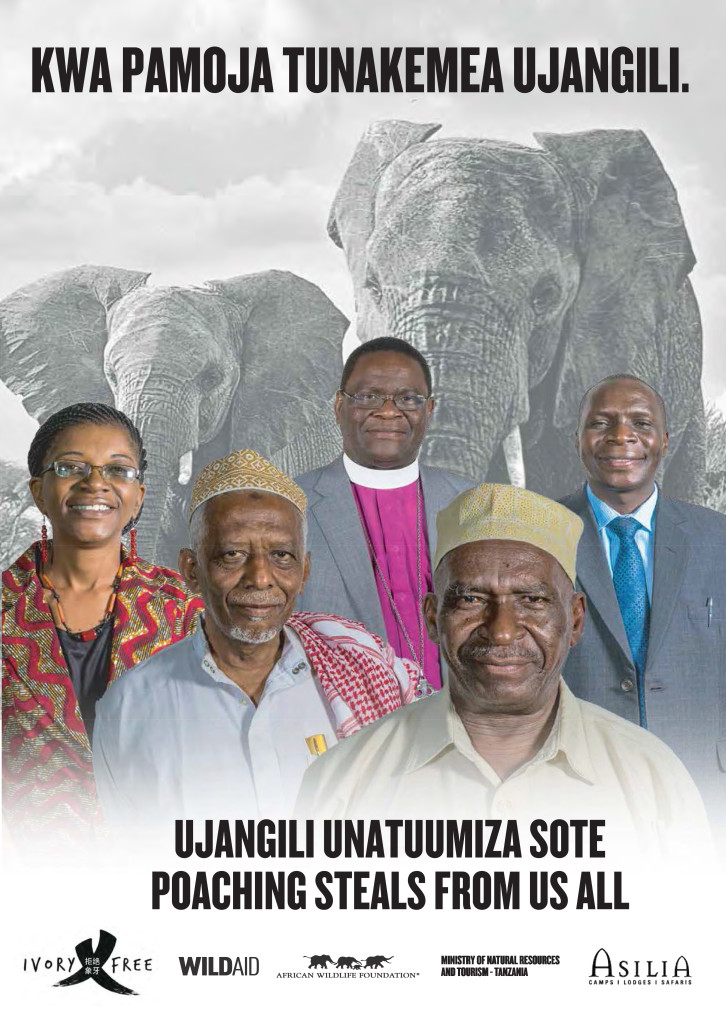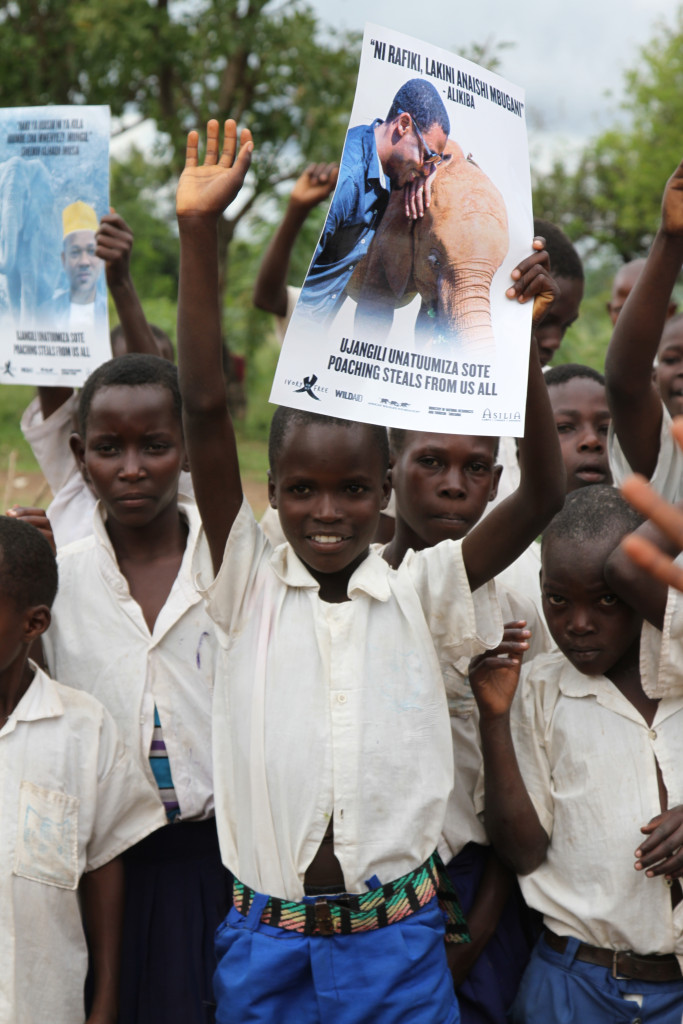Asilia partners with WildAid
Last year we got together with WildAidto expand their marketing campaign in Tanzania called “Poaching Steals From Us All”.
After rolling out large-scale conservation awareness campaigns in China and other parts of Asia to address demand reduction, WildAid sought to complement this with supply-side awareness activities in Africa, supporting government efforts to stamp out poaching and the illegal wildlife trade.
It’s no secret that Africa’s natural heritage is under immense threat due to a number of factors. WildAid tackles the ‘soft’ side of conservation that is, changing hearts and minds.
WildAid, an international non-governmental organization, started by identifying social influencers in Tanzania and came up with religious leaders and celebrities as being important game-changers. These individuals were approached and, seeing the benefits of long-term sustainability of the country’s natural heritage, leapt at the opportunity to improve their countrymen’s lives. The campaign was initially rolled out via large billboards in the most populous areas and through radio and TV public service announcements.
But what about rural areas, where poaching actually occurs, and what about the youth, who are recognized as “The Change” worldwide?
This is where Asilia stepped in.
Operating in some of Africa’s finest wildlife areas we come into daily contact with, and support, many communities living nearby. So we thought we could use our relationships to amplify the WildAid message.Posters were designed and distributed to many schools and local government offices in the outlying areas where we work. We recently followed up to find out how the campaign had been received.
Children from several schools in the northern Serengeti region were interviewed. Here are some of their answers.
What do you think about poaching?
“Poaching is a risk job. I still remember how my brother died in 2013 when he went poaching. He was killed by buffaloes. Poaching is not a decent job a person can do.” Amos Chacha (12yrs), Merenga Primary School.
“Poaching is not good to our natural resources, it lead to destroys our environments and wild animals.” Totalli Singira Rhobi (14yrs), Merenga Primary School
“I don’t think that poaching is good. My mother told me once that poachers risk their lives – they can be killed by animals or can be taken to jail.” Karen Daniel Chacha (7yrs) Machochwe Primary School.
Why do you think wild animals are important to people?
“Animals are important because through tourism people get decent jobs.” Wambura Chacha (13yrs) Kitunguruma Primary School.
“They are very attractive and have rights to live.” Karen Daniel Chacha (7yrs) Machochwe Primary School.
All the children interviewed said that if they met a poacher they would tell him to stop.
In addition several teachers and local government leaders were interviewed. Here are excerpts from their reports:
“We will have good ambassadors of anti-poaching in our villages because most of primary schools are involved in the campaign. “ Mr. Passover Mrema, Teacher at Machochwe Primary School.
“Pupils have been talking about the WildAid posters every time and anywhere. I believe they will take the message back to their parents and relatives that poaching is not good and lots of people are fighting against it.” Ms Petronila Kavishe, Teacher at Kitunguruma Primary School.
“Now they know that many people from different walks of life are involved in the fight against poaching. Thank you for coming with the posters, they help spread the message in my village.” Mr. Marwa Birundwa, Village Chairman at Mbalibali Village.
Asilia’s Positive Impact Coordinator, Clarissa Hughes, explains why collaborations such as this are so important: “Public-private partnerships are really the only way to address the multiple problems facing the world today. No single entity can be expected to solve such complex issues. As a tourism operator in East Africa’s remote areas we’re very happy to do what we can to help, and we invite other potential partners to contact us.”
More Positive Impact Articles

Electric Vehicles: The Future Of East African Safari Travel?
12 January 2020October 2019 saw the arrival of our first electric, solar-powered safari vehi...

Its Our 15th Birthday: Celebrating 15 Years of Making a Genuine Difference
08 November 2019This year, we're celebrating our 15th birthday and commemorating 15 years of...

World Tourism Awards 2019: Asilia Recognised For Our Positive Impact
01 November 2019The World Tourism Awards acknowledge, reward, and celebrate excellence across...

Supersized Traditional Maasai Necklace
21 October 2019In 2009, we became a founding member of the Mara Naboisho Conservancy and sin...







